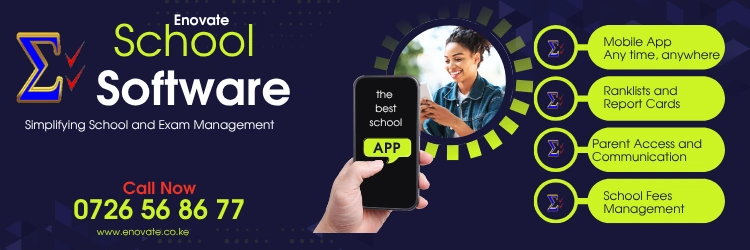What is a competency?
Is the ability to apply appropriate knowledge, skills, values and attitude to successfully perform a real-life task.
What is Competency Based Curriculum (CBC)?
An education programme focused on the learner’s ability to apply the knowledge, skills, values and attitude to successfully perform a real-life task.
Basic Education Curriculum Framework
- BECF Grades Age Years
- Early years Education – Pre-primary PP1 – PP2 4 – 5 2
- Early years Education – Lower Primary 1-3 6-8 3
- Middle school Education-Upper Primary 4-6 9-11 3
- Middle School Education-Junior Secondary 7-9 12-14 3
- Senior School 10-12 15-17 3
- University – 18-20 3
THE BIG SHIFT
PREVIOUS SYSTEM
From 7-4-2-3 in 1963, to 8-4-4 in 1985 – over time the system became academic and examination oriented leading to three key problems:
NEW SYSTEM
In response to the Constitution of Kenya 2010 and to achieve Kenya Vision 2030, we need to transform our education system towards developing three key components:
Problem 1
- DISCONNECT between school content and the world of work. Youth unemployment is on the increase. Many Learners exit school without skills for work and skills for life.
- COMPETENCIES: Kenya’s economy is rapidly changing. Some of the jobs will be transformed by 2030.
We need to prepare our children for new possibilities. The 21st Century demands citizens who are multi skilled. The new system seeks to produce a child with relevant COMPETENCIES to thrive in a rapidly changing world.
Problem 2
DISCONNECT in realizing the national goals of education which emphasize core values and principles such as nationalism, social equality and responsibility
CHARACTER: the school system needs to mold learners to acquire values and support peace and national unity. Value based Education and parental involvement are core pillars in the new curriculum. The new system seeks to produce a child who has good character.
Problem 3
DISCONNECT with the needs of the 21st century which has been dubbed as a knowledge and skill
age that demands a new set of competencies.
CREATIVITY : The 21st Century is a society in which knowledge and well thought out ideas are key source of economic growth.
The school system needs to
develop Kenyans who are able to creatively solve problems.
Shift in assessment
- Traditional assessment
- Assessment of learning (summative assessment)
- Assessment of knowledge acquired through
rote learning - Norm referenced
- Encourages competition
- Rigid (prescribed duration)
- Teacher and national assessment
Competency based assessment
- Assessment for and as learning (formative
assessment) - Assessment of competencies development
- Criterion referenced
- Encourages collaboration and cooperation
- Flexible based on the pace of the learner
- Include self and peer assessment
Objectives of Competency Based Assessment Framework
- Evidence for Accountability
- Identifying and Nurturing Learner Potential
- Determine acquisition of competencies and values
- Improving Learning, Instruction & Assessment
- Measuring learner participation in CSL and Acquisition of values
- Feedback to Stakeholders
- For certification after grade 12
Acronyms used in the Competency Based Assessment Framework
- CA Classroom Assessment
- SBA – School Based Assessment
- KEYA –Kenya Early years Assessment
- SYR –School Year Report
- KPSEA – Kenya Primary School Education
- KMYA- Kenya Middle Year Assessment
- KCBE- Kenya Certificate of Basic Education
- LEP – Learner exit Profile
- Levels of Competency Based Assessment
CBA is divided into three levels
- Early Years Education Assessment
- Middle School Education Assessment
- Senior School Education Assessment
PRINCIPLES GUIDING ASSESSMENT
TYPES OF ASSESSMENT
Formative Assessment
Assessment for learning – designed and administered during the learning process
- Assessment as learning – learners evaluate their work against learning outcomes
- For example, Classroom Assessment
- And school Based Assessment
Summative Assessment
Assessment of learning – undertaken at the end of a learning period
- For example, National Assessment
Theories of learning and Assessment
- Cognitive Development
- Piaget’s Cognitive Development Theory
- Bruner’s Cognitive Development Theory
- Howard Gardner’s Multiple Intelligence Theory
- Social Constructivism
- Dewey’s Social Constructivism amplified by
- Elliot
- Jonassen
- Honebe
- Vygotsky’s Sociocultural Theory
- Behaviourism
- Ivan Pavlov
- Edward Thorndike
- John B. Watson
- B. F. Skinner
Educational Stakeholders in The CBAF
- Learners
- Parents/guardian
- Headteachers
- Teachers
- MOE (quality assurance and standards)
- Kenya Institute of curriculum Development (KICD)
- Subcounty Directors (ministry and TSC)
- Curriculum support officers

